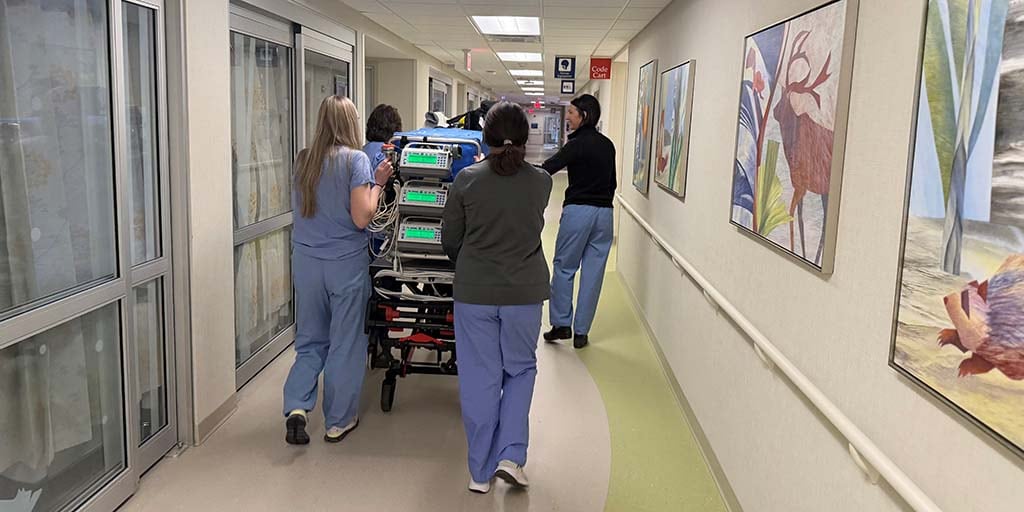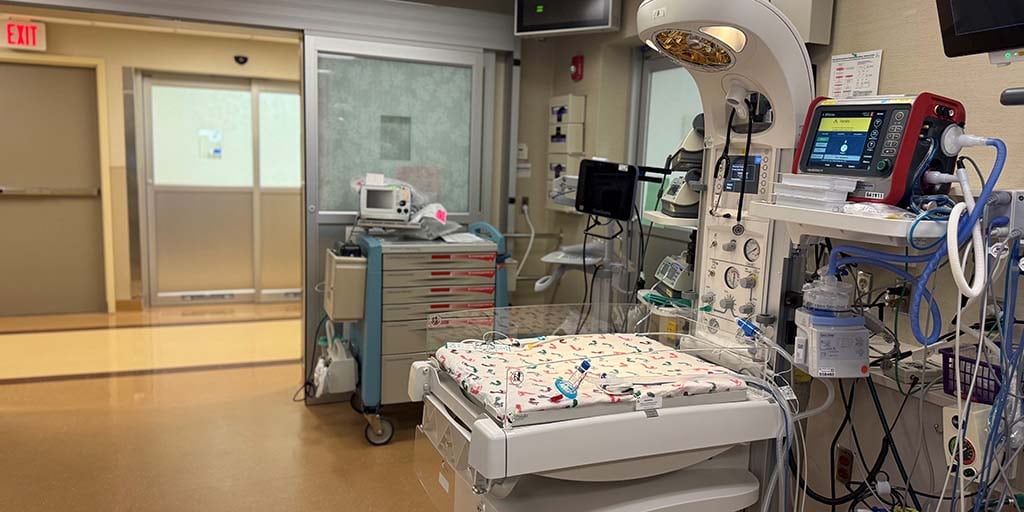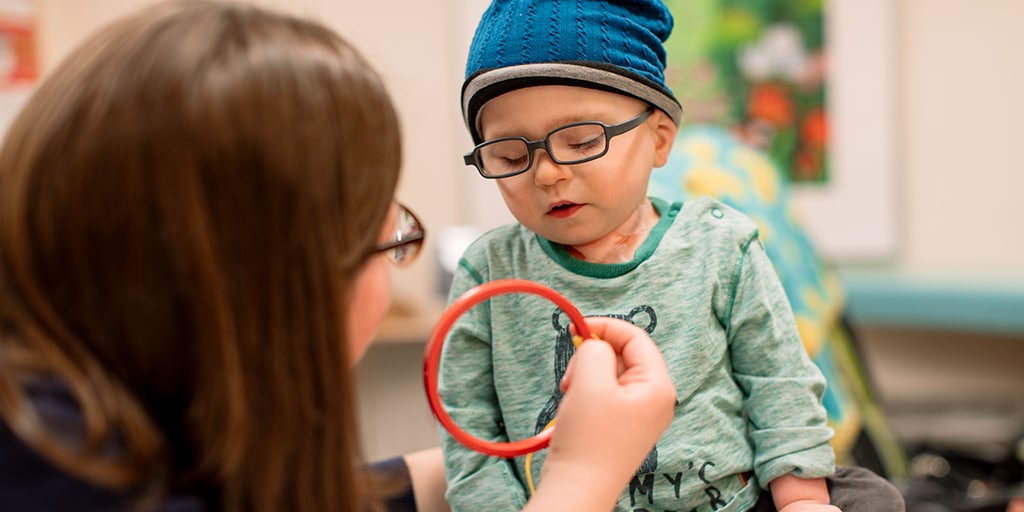Curriculum
/prod01/channel_2/media/mccms/content-assets/academics/residencies-and-fellowships/neonatal-perinatal-medicine-fellowship-minnesota/curriculum/neo-peri-med-fl-mn-1024X512-Person-in-hospital-room.png)
Clinical rotations
During the Neonatal-Perinatal Medicine Fellowship, you engage in supervised clinical training in three areas at Mayo Clinic with increasing entrustment to lead the NICU team:
Level IV Neonatal Intensive Care Unit
Mayo Clinic Hospital, Saint Mary's Campus
The 39 bed level IV Neonatal Intensive Care Unit (NICU) at Mayo Clinic Hospital, Saint Mary's Campus is the site where fellows care for the most complex neonates. Supervised by a member of the neonatal medicine faculty, each fellow gradually gains expertise and autonomy in the assessment and management of newborns with various medical and surgical conditions, including those with severe bronchopulmonary dysplasia, critical congenital heart disease, intestinal failure, and fetal kidney failure. In-house call occurs at this site, with each fellow working in-house one night a week on average. Tour our new state of the art NICU.

High Risk L&D, NPM Consult Service, and Level III NICU
Mayo Clinic Hospital, Methodist Campus
This fast-growing service currently delivers nearly 2,500 infants annually, with more than 1,000 considered high-risk due to fetal or maternal conditions. Fellows attend high-risk deliveries at this site, learning to lead a medical team, rapidly assessing the newborn patient, and providing necessary interventions quickly and effectively. Fellows also learn antenatal consultative skills here for mothers with high-risk pregnancies in the ambulatory MFM clinic and high risk L&D settings. Fellows may also rotate in the Level III NICU at the Methodist campus.
Mayo Clinic Hospital, Methodist Campus, is also the site of the Intermediate Special Care Nursery (ISCN). Each fellow spends one month on service in the ISCN during the final year of fellowship, learning to master the care of chronically ill neonates who are making the transition to discharge home.

Neonatal Developmental Follow-Up Program
Mayo Building
Fellows participate in the multidisciplinary team caring for NICU graduates in the Mayo Clinic NICU follow-up clinic. Here, fellows learn how to diagnose developmental delays and coordinate services for affected patients in order to optimize their developmental outcomes. Fellows rotate in NICU follow-up clinic once per month on research months.

Palliative Care and Clinical Ethics

Mayo Clinic Hospital, Saint Mary's Campus
All fellows rotate with the pediatric and neonatal inpatient palliative care team for one month during NPM fellowship. The focus of this rotation is exposure to primary palliative care approaches, including advanced family-centered communication skills and effective pain and symptom management.
Rotation schedule
There are 22 research blocks and 14 clinical blocks during the Neonatal-Perinatal Medicine Fellowship. Fellows have four weeks of vacation each year. A sample schedule is included below.
| Month | Year 1 | Year 2 | Year 3 |
|---|---|---|---|
| 1 | Bootcamp RMH* |
Research | NICU |
| 2 | NICU | Research | Research |
| 3 | Research | NICU | Research |
| 4 | Research | Research | NICU |
| 5 | NICU | Research | Research |
| 6 | Research | RMH* | Research |
| 7 | Research | Research | NICU |
| 8 | Research | NICU | Research |
| 9 | NICU | Research | Palliative Care and Clinical Ethics |
| 10 | Research | NICU | Research |
| 11 | Research | Research | NICU |
| 12 | Research | NICU | Research |
*Level III NICU/high risk delivery/consult service
Call frequency
- SMH NICU: As an on-service fellow, you are responsible for just one night of call a week — Tuesday.
- Research, RMH, and PCCE: The fellows assigned to research rotations are responsible for just one night of call a week — Sunday or Thursday, alternating week to week.